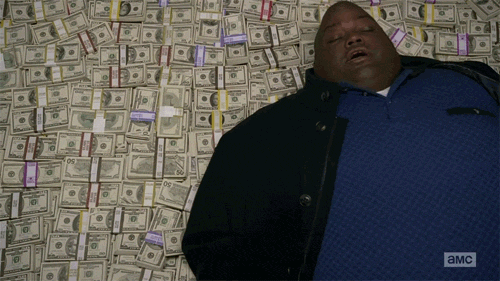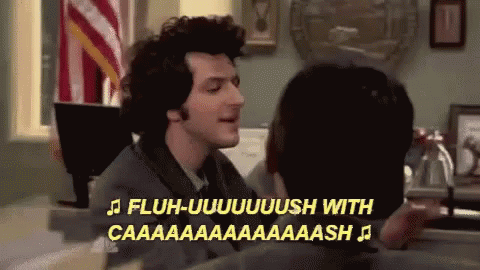Cash Is King
Investing is exciting. It’s fun to take the risk and watch your money grow. It makes you feel like you’re doing something with your money. The allure of investing and growing your money is so strong that the simple act of saving cash in a bank account often gets overlooked. As opposed to talking endlessly about hot stock picks and real estate ventures, no one is boasting to their friends about how much cash they’ve put away in the past few months.
A recent survey showed that only 41% of Americans would be able to cover a $1,000 emergency with savings. That means the other 59% would have to resort to a credit card, take on some other form of debt, or ask family for help. Saving up enough cash to cover emergencies isn’t a groundbreaking concept, but doing it will change your outlook on your financial situation and your life. Having an adequate store of cash, like an emergency fund, is the foundation of financial security.
What is an emergency fund?
An emergency fund is money set aside to cover unexpected expenses. This money can be used to cover living expenses in case of a job loss or career transition, unplanned trips to the hospital, car or house repairs, or a family emergency. Because these events are unexpected and often happen suddenly, it’s important to keep this money in a place that you can access quickly and easily.
The standard recommended amount to have in your emergency fund is three to six months of personal living expenses. Some people are more conservative and like the extra security of having more than six months, but you should set a goal to have at least three months of spending as a minimum.
Keep your emergency fund somewhere liquid and low risk. A savings account is usually safer than under your mattress. I would also recommend having this money separate from the account used for your day to day expenses. Like many people, I keep mine in a high-yield savings account. With current interest rates being so low, my account isn’t very high yielding at the moment but it still offers 10 to 20 times the return of a traditional savings account. While the higher interest rate is nice, the primary purpose of the account is storage, not growth.
Why do you need one?
This year has been as good an example as any to demonstrate the need for an emergency fund. Who would have predicted that a pandemic would strike causing businesses to shut down, the stock market to crash, and unemployment to skyrocket basically overnight? It’s been a tough year for everyone, but especially so for those without a proper emergency fund in place. You never think it will happen until it does.
“An emergency fund turns a crisis into an inconvenience” - Dave Ramsey
For most people, a principal function of money is security. Knowing that you have money set aside that is specifically meant to cover an emergency, an unforeseen expense, or be a buffer through a job transition is the ultimate form of security. The true value of an emergency fund is peace of mind.

If you’re concerned about having some of your money sitting in a savings account not getting a return, don’t be. Having ample cash on hand will actually make you a better investor and in turn, allow you to get higher returns on the money that you do invest. You’ll be less worried about market movements and economic uncertainty because you have a safety blanket. You’re more willing to stick to your plan and stay invested knowing that if something were to happen, you’ve already prepared for it. An emergency fund is great for reducing investing anxiety.
Don’t let the simplicity and easiness of saving cash distract you from its importance. There’s a high correlation between stress and not having enough liquidity. Cash in a savings account certainly isn’t the most optimal place to make a return on your money, but it serves a critical role in your financial plan and provides more peace of mind, flexibility, and stability.
Thanks for reading!





